A review of the Hanayamata anime

You know how Hanayamata ends. You probably know how the majority of the individual episodes end as well. Cliche is both the strongest and weakest thing that Hanayamata has going for it, because on the one hand you can be safe in the knowledge that the quintet of girls will make it through with smiles on their faces and fireworks in their eyes and that everything will be all right. On the other hand though, there’s not a lot else going on. It’s a solid, visually arresting but cacophonous twelve episode series that starts with trepidation and ends with a dance number.
the series feels like its trapped in a swarm of disgruntled sparrows
It’s set in Kamakura though which, if you’ve ever had the pleasure of going there, is one of those places where you can travel in a rickshaw and see horse archery and a bronze buddha statue all in an afternoon. Setting Hanayamata there gifts it with a kind of ethereal magic that the first episode, with its pint-sized dancing blonde girl, captures brilliantly, making it seem that a school club for yosakoi isn’t so outlandish.
Read the rest of this entry
A review of Zankyou no Terror

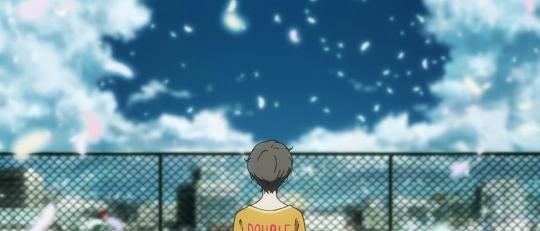
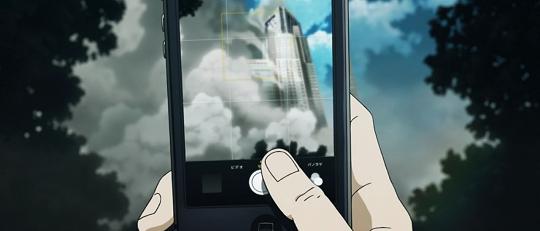
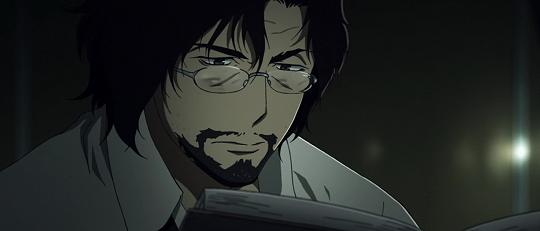
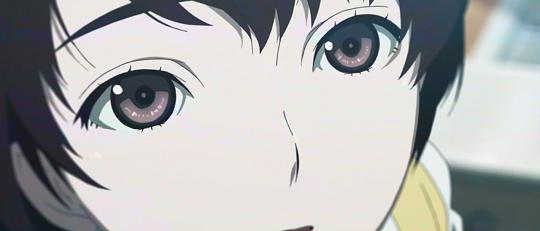
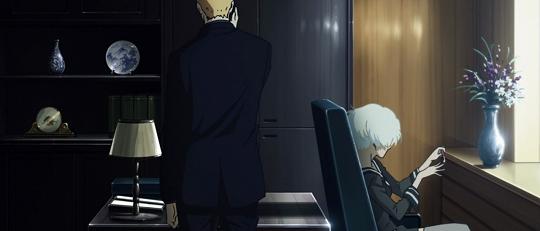


It would be false to say that there are mainstream and niche anime series when anime as a medium is niche, its audience perhaps even more so. Beyond the One Piece’s, with their absurd viewership, there is a definite split between the popular, attention grabbing series - the Code Geass’, the Sword Art Online’s - and the smaller, less broadly approachable ones. Zankyou no Terror (Terror in Resonance, Terror in Tokyo) is firmly the latter, but starts out as the former.
teenage savants, using technology to outwit and outmaneuver the police
With the bombing of the iconic Tokyo Metropolitan Government Building the first episode builds sublime tension while simultaneously introducing the principal cast members; and for the next few episodes at least, the series pitches itself as a cat-and-mouse style detective thriller, with adolescent terrorists Nine and Twelve goading the police while destroying key locations within Tokyo. Kenjirou Shibazaki, a hard-boiled but relegated detective, meanwhile might just be smart enough to catch them. What doesn’t become apparent until much later is that this structure, “catch us if you can”, is not even close to what Zankyou no Terror is about.
Please note: the remainder of this review contains spoilers for the entirety of the Zankyou no Terror series.
Read the rest of this entry
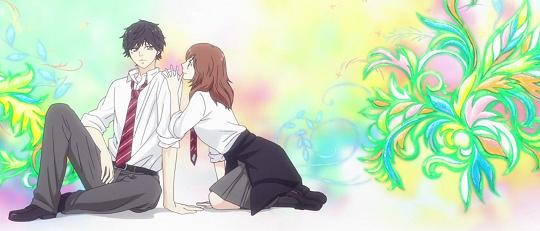

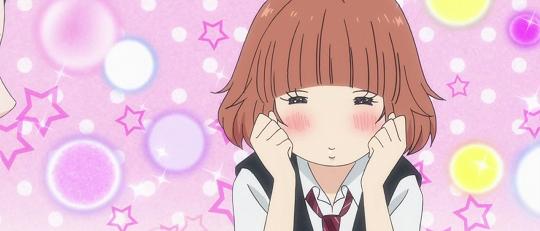

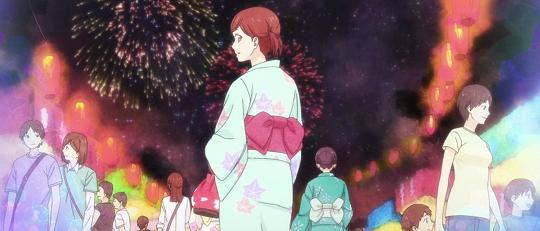

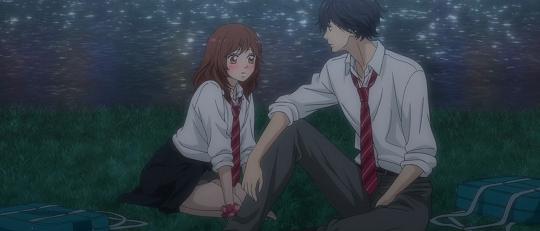

I’ll get all the deferential flimflam out of the way first: I know very little about romance manga and anime and, if Ao Haru Ride (Blue Spring Ride) is anything to go by, I know even less about teenagers as well. Though I often try to forget, I too was once an adolescent but due to circumstances I won’t elaborate on, most of that time was, for me at least, spent surviving high school rather than, well, anything that goes on in Ao Haru Ride.
not just furtive glances and accidental touches, oh no
Futaba had a crush on Kou in middle school until he up and disappeared. And now he’s come rocketing back into her life, with floppier hair, a fancy new last name and a whole heap of emotional baggage. Broken bird meet your new caretaker! Or so I thought. What I expected going into the series was a story of teen romance and certainly the opening episode seems to be heading that way. Only it’s less of a teen romance than a teen drama which, when I sloughed off my expectations, turned out to be a lot better than just a straightforward puppy love schmaltz.
Read the rest of this entry
A review of the Golden Time anime series


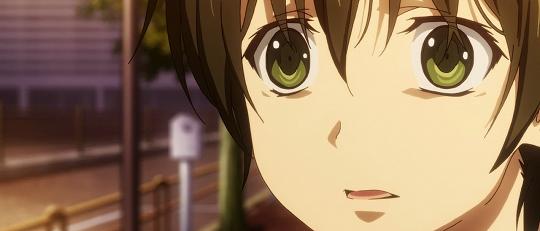
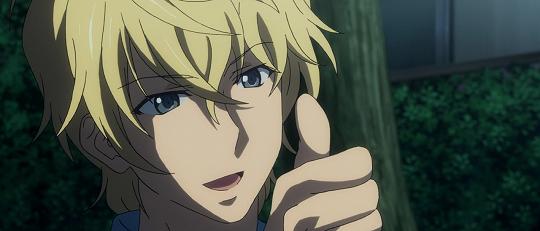
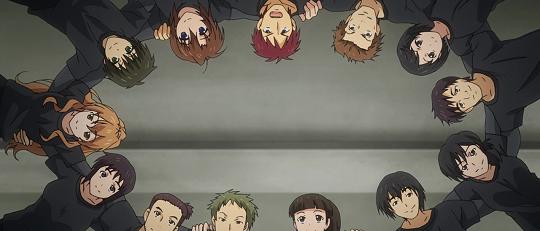

I went through a very specific cycle with episodes of Golden Time: “1. What happened last episode? 2. Why am I watching this again? 3. Banri/Koukou/Mitsuo you clods, get it together. 4. Okay that wasn’t bad.” Rinse, repeat. The series has the same kind of moreish, ludicrous mentality that soap operas do, even going as far as leaving each episode on a cliffhanger regardless of how incongruous doing so is. It came as some surprise to me then that Golden Time is penned by the same author as Toradora, arguably one of the finest straight-faced campus romance series. Both have the same kind of unyielding outlook on relationships - romantic or otherwise - and a core pairing that drives the plot, yet Toradora never raised the question of its chosen medium like Golden Time does.
it’s a good idea to try and raze their relationships to the ground with some ill timed emotional savagery
Both started as light novels by Yuyuko Takemiya and both have commendable anime adaptations yet Toradora’s cast of characters - the “palmtop tiger” Taiga and the faux delinquent Ryuuji et. al. - slotted right in with standard anime archetypes. After all, we’ve had boatloads of contemporary school romance stories both before and after. Golden Time though, with it’s inner-city University setting and the amnesiac Banri Tada and lion like Koukou Kaga, is something we’ve seen very little of before and it raises the question of: why an anime?
Read the rest of this entry
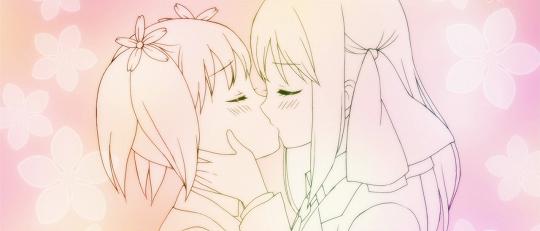
It’s right there in the first few lines of the opening: “Kiss kiss kiss, I can’t take my eyes off you”. That’s the entirety of Sakura Trick, the length and breadth of its offering. The initial gambit is much bolder: a fluffy but uninhibited romance between two young women; the reality though lacks a lot of what could have made that worthwhile. Wait, rewind. Sakura Trick isn’t for me. As a modern, self-effacing male, it’s probably prudent to start with that. It’s also not as though I have a whole lot of context for what the twelve episode series brings to the shoujo ai genre (although Wikipedia insists it’s targeted at young adult males). Certainly I have touchstone shows to fall back on like Sailor Moon and Revolutionary Girl Utena as well as the briefest of exposures to Maria-sama ga Miteru and Strawberry Panic but in terms of it embodying or enhancing its genre? Very little.
wreathed in pastel shades and inundated with an endless source of cherry blossom
It’s refreshing at first to see an intimate relationship between two characters in an anime that doesn’t cleave closely to the harem or chase-the-girl setups. The series is bookended by what feels like a natural progression for the two protagonists: starting with them advancing to more than just friends and finishing with them questioning what love is. The naturalness presents the initial allure because it normalises a same-sex relationship that is elsewhere presented as coy and unspoken with series like My-HiME or even Stellvia of the Universe. It becomes a given that Haruka and Yuu are together and that either their friends are oblivious to it or blithely accept it.
Read the rest of this entry























